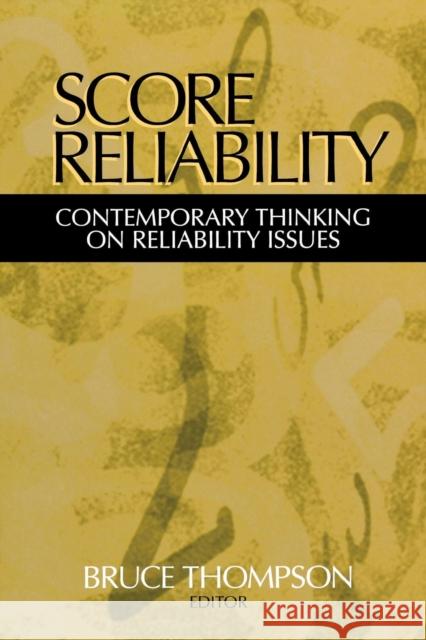Score Reliability: Contemporary Thinking on Reliability Issues » książka
Score Reliability: Contemporary Thinking on Reliability Issues
ISBN-13: 9780761926269 / Angielski / Miękka / 2002 / 296 str.
Should a high school diploma be awarded to students based on their score on a final exit exam? Should businesses deny employment to people based on their score on a personality test? In a world of "high stakes" testing, it has become more important than ever to make certain the scores upon which we base out decisions are reliable. Aimed at helping researchers create and evaluate scores better, this reader presents the basic concepts of classical (or "true score") and modern ("generalizability") test theory. Beginning with a review of reliability and validity issues in measurement, the book covers score reliability, reliability induction, and reliability generalization. Exercises with sample data are included at the end of each section so you can try an actual demonstration of the principles discussed. Features/Benefits The book is written to be accessible and to presume no prior instruction in measurement The emphasis is conceptual Key concepts regarding reliability are covered in greater depth than is possible in a generic measurement textbook The book reflects new ideas as regards emerging measurement issues such as "reliability induction" and "reliability generalization











